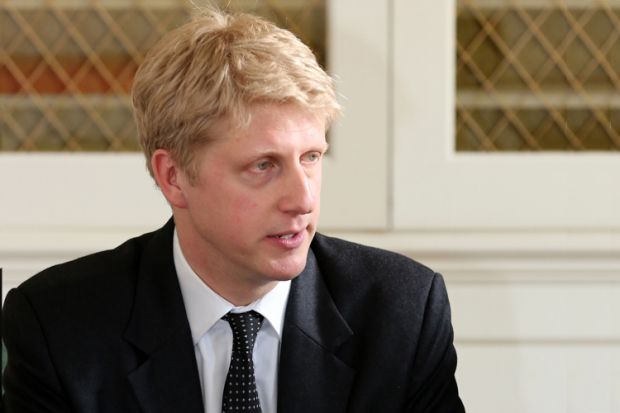Jo Johnson will outline plans to make universities “publicly justify” any pay above that of the prime minister, to include graduate earnings data in the next round of England’s teaching excellence framework and to pilot a subject-level version of the exercise.
The universities and science minister will also announce plans for “stronger contracts” between universities and students in a speech in London today, referring to “poor-quality” courses. And Mr Johnson will mount a defence of the current funding system, which has come under pressure following the election impact of Labour’s policy to abolish tuition fees and from an Institute for Fiscal Studies report highlighting problems with the system.
Universities will be asked to publicly justify any pay exceeding that of the prime minister, which stands at £150,402 a year, the minister is expected to say. According to Times Higher Education’s comprehensive data on vice-chancellors’ pay, only seven English institutions paid their leaders a salary below that level in 2015-16.
The Department for Education said that plans for “the next round of institutional TEF assessments” to “incorporate new analysis of graduate outcomes to help students decide where to study based on the careers of previous graduates” will be included in the speech.
This refers to the Longitudinal Education Outcomes data recently published by the DfE, showing variation in graduate earnings by university and by course. There was no clarification from the department on whether or not these data will be benchmarked when included within the TEF, to reflect factors such as the influence of entry tariff and social background of students on graduate earnings, and regional variation in earnings.
Speaking to university leaders at the thinktank Reform, Mr Johnson will say: “When students and taxpayers invest so heavily in our higher education system, value for money should be guaranteed. Yet, I am still hearing students say that their course is poor quality.
“This is not good enough, especially when some vice-chancellors take home a wage that in some cases exceeds that of the prime minister.
“So, on top of the government’s reforms through the teaching excellence framework, I am insisting on effective consumer protection for students and calling for an end to spiralling vice chancellor pay.”
Mr Johnson attacked the £350,000 pay package of the University of Southampton’s vice-chancellor Sir Chris Snowden last month, and the issue of high pay for vice-chancellors has been highlighted by Labour peer Lord Adonis.
The Office for Students – the sector’s new regulator – will be expected to address this issue. Nicola Dandridge, who will be OfS chief executive, has long defended vice-chancellorial pay levels as Universities UK chief executive.
Average pay for vice-chancellors, including pension contributions, stood at £280,877 in 2015-16, up by 2.2 per cent since 2014-15, last month’s THE pay survey found.
Register to continue
Why register?
- Registration is free and only takes a moment
- Once registered, you can read 3 articles a month
- Sign up for our newsletter
Subscribe
Or subscribe for unlimited access to:
- Unlimited access to news, views, insights & reviews
- Digital editions
- Digital access to THE’s university and college rankings analysis
Already registered or a current subscriber?





